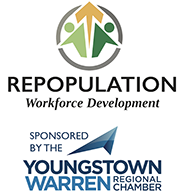YOUNGSTOWN, Ohio – Honduras native Moises Lopez moved to Youngstown from Miami in 2020 to be closer to his daughter.
“In Miami, a lot of people are speaking Spanish,” Lopez says. “For me, it’s hard – English.”
When he relocated to Youngstown, that changed. Fewer people speak his native tongue. He enrolled in classes at The English Center to learn the language.
“I’m happy here with my teacher, Vasiliki [Constantine],” Lopez says. “She’s helping me speak English. … I want proper English for better communication with other people.”
He’s learning the language and growing more comfortable with it with Constantine’s help.
“She explains it very well,” Lopez says.
Lopez, who works in construction, is one of about 10 students who attended the Community Outreach Program for Early Beginning Students by The English Center taught twice weekly at the Michael Kusalaba Branch of the Public Library of Youngstown & Mahoning County.

The students in the class one Tuesday in early January came to the Mahoning Valley from Mexico, Ecuador, the Dominican Republic and Guatemala.
During 2022-23, the center served 175 students hailing from Ukraine, China, Japan, Brazil, Chile, Columbia, Congo, Egypt, Guinea Republic, Haiti, Hungary, Iran, Iraq, Israel, Italy, Ivory Coast, Jordan, Lebanon, Pakistan, Palestine, Peru, Russia, South Korea, Serbia, Sierra Leone, Spain, South Arabia, Thailand, Turkey, Uruguay and Venezuela.
The Youngstown/Warren Regional Chamber and Eastgate Regional Council of Governments are embarking on a plan to repopulate the Mahoning Valley.
It’s an effort to ensure there are enough workers to fill the high-skill jobs that currently exist as well as jobs that will be created over the next several years.
Officials point to a three-pronged approach: retain young people, return people who have left here and receive immigrants and refugees.
ENGLISH CENTER ROLE
The English Center teaches English to “non-English speaking adults that are coming to our community,” says Karen Conklin, center executive director.
She’s humbled by the people who want to learn English to better their lives.
“That’s how they’re going to get better jobs or help their kids in school,” Conklin says. “And I’m so humbled by their bravery.”
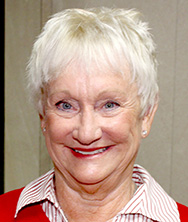
The center teaches five levels of English depending on an individual’s assessment, and offers in-person and online classes.
“The teachers are doing it for the love of helping to improve lives,” Conklin says. “It’s amazing.”
Online classes, started during the pandemic, make it more convenient for students with transportation or child-care challenges or work conflicts.
In-person classes resumed when the war in Ukraine started and refugees from that country fled to the area.
“Then we recognized a specific niche,” Conklin says. “That is, if you don’t speak English, how do you find a doctor?”
She reached out to the Youngstown Health Department, which developed a health-focused class, partnering with the main library branch.
The center was founded in 1918 as part of the International Institute when many immigrants were coming to the Mahoning Valley to work in the steel mills. The institute became part of a foundation in 1986 and The English Center became a separate, nonprofit entity.
OTHER CITIES’ SUCCESS
Other cities, including Erie, Pa., and Dayton, Ohio, boast robust immigration services that may provide a blueprint for the Valley’s efforts.
Welcoming America, a national nonprofit organization, has certified Dayton and Erie as welcoming cities. It’s a designation that recognizes the cities’ creation of policies committed to immigrant inclusion.
In a statement, Erie Mayor Joe Schember pointed out that his city doesn’t have the capacity or resources to support undocumented migrants.
“Over the last 20 years, documented immigrants and refugees have found Erie, Pa., to be a safe, welcoming city and an easy place to start over,” he says in the statement. “Local organizations, such as the Multicultural Community Resource Center, the U.S. Committee for Refugees and Immigrants, and Catholic Charities Refugee Resettlement, do amazing work each day to welcome and connect documented refugees to services, resources, housing, jobs, training, and schools.”
He says the goal is to help them become self-sufficient as soon as possible.
“The documented immigrants and refugees who arrive in Erie are committed to building a better life for their families and becoming integral members of the community,” Schember says. “And their involvement enriches our community as we can learn from and experience the tastes, sights, and sounds of so many diverse cultures. But that said, the city of Erie and the nonprofit organizations related to the matter do not have the capacity to accommodate or place undocumented migrants.”
ONE MAN’S EXPERIENCE
Zuhair Noori, owner of Z’s Notary in Erie, came to that city in August 1993 from Iraq with his two brothers. He was 24, had $100 in his pocket and knew only two English words: Yes and no.
It was after Saddam Hussein invaded Kuwait. The brothers opposed the invasion and fought against it without success.
“We had to flee the country,” Noori says.
They fled to the desert where United Nations officials found them and told them they could go to either the United States or Europe.
“We chose the U.S.,” he says. “Because we watched a lot of movies when we were young, we thought this country was about freedom and opportunity. We saw a land of opportunity when we got here.”
The U.N. agency located them to Erie, Noori says.
“They welcomed us,” he says.
The U.S. Committee for Refugees and Immigrants found jobs and shelter for him and his brothers.
“We moved on with our lives,” Noori says. “We were working within the first two weeks in the factories. We went to school to learn English.”
It took about six months for Noori to communicate in English without a translator and about a year before he was self-sufficient.
He and one of his brothers opened a business fixing cars until Noori’s doctor told him he needed a different line of work, and he opened a notary business.
Noori moved to Boston for about six months but returned to Erie and decided to stay.
“Erie is home to me,” he says.
HELPING IMMIGRANTS TO THE VALLEY
Conklin remembers her mother, sitting at the kitchen table, teaching English to Vietnamese people who came to East Liverpool to work in the pottery factories.
That’s why she wanted to be part of The English Center.
“I feel her hand is in this,” Conklin says.
The region’s repopulation effort involves a lot of different organizations, she says.
“If we could dream about a resettlement center, where if you come to this community from Ukraine [for example], and you need housing, you need social services, you need to learn English, you have this one-stop shop,” Conklin says. “It could be amazing.”
Classes at The English Center are full, with waiting lists.
Another vision is for employers to pay the center to teach their non-English speaking workers.
“That would certainly help with workforce engagement,” she says.
The Ursuline Sisters Mission also teaches English to those who need the service.
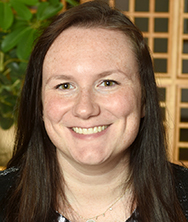
“Our main focus is the English classes on Tuesday and Thursday mornings,” says Sarah Chill, education outreach director.
The mission offers different levels of English instruction to help students progress throughout the year.
“We also do a lot of wraparound services like helping them get their kids enrolled in school, Chill says.
Mission representatives help immigrant families with copies of documents needed too.
HOW DAYTON DOES IT
Jeanette Horwitz is the coordinator of Welcome Dayton, which is part of that city’s community engagement department. It was started in 2011.
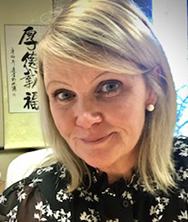
“At that time, there were immigrants here already and there were concerns about housing discrimination for the Hispanic community especially,” Horwitz says. “Some community members got together to figure out what we can do as a community to make the city more immigrant friendly.”
Welcome Dayton operates an office inside of the Dayton City Hall, but it’s not a welcome center or a direct service provider. Its employees work to connect new Americans to services including English-language classes, legal services, immigrant community associations and community resources.
“The mission is the integration of immigrants into the community,” Horwitz says.
There are 65 neighborhoods in Dayton and many of them have a neighborhood association.
“We focus a lot on connecting immigrants with those associations or business associations,” she says. “We help them connect with resources to make sure they’re part of the city and to make sure their voices are heard.”
Dayton enacted a language access policy in 2015, ensuring that people with limited English skills who come to city hall for services are able to get what they need. Materials are printed in different languages and there’s a service that translates via phone so that employees and non-English speakers can communicate.
Refugees and immigrants come to Dayton from many countries, including Congo and Ukraine recently.
About 15 years ago, the city saw an influx of refugees who are Ahiska Turks.
“They were able to get jobs and they bought houses in the Old Dayton neighborhood,” Horwitz says.
That neighborhood had been declining and the newcomers transformed it, she says.
“They bought houses and opened restaurants and shops,” Horwitz says.
In 2019, by working with other organizations, Welcome Dayton started the Miami Valley Community ID Program.
While not a driver’s license or state government-issued ID, the Miami Valley Community ID offers identification for those who may have difficulty securing those forms of identification. That includes those who come to the Dayton area from other countries.
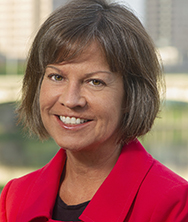
Another agency that helps immigrants to the Dayton area is Catholic Social Services of the Miami Valley. The organization works with the U.S. Conference of Catholic Bishops and the U.S. Department of State, says CEO Laura Roesch.
The number of people brought to the Miami Valley area and from what countries depends on the area’s capacity and language services. That’s gauged by a survey administered by the state department.
Representatives from Catholic Social Services often pick up people immigrating to the area at the airport and transport them to a home that’s been prepared for them or an extended stay hotel.
“We help them establish access to health care, get their kids set up in school, [set them up] with language support, connect them to financial resources and social services,” Roesch says. “The first 90 days are very intensive.”
And the organization has employers calling, looking for refugees to hire.
Initially refugees may work in factories or the hospitality industry.
“But that’s just the start, it’s not the conclusion,” Roesch says.
They often move on to other professions.
“Job retention is excellent,” Roesch says. “This is a hard-working community of people who want to be successful here.”
MAHONING VALLEY EFFORTS
The nonprofit Thrive Mahoning Valley formed in 2017 to serve people coming to the Valley from Puerto Rico after hurricanes there, says Christopher Colón, co-director. Justin Mondok is its other co-director.
With a grant from the Raymond John Wean Foundation, Thrive Mahoning Valley published a resource guide – in English and Spanish – on its website to help people find the services they need.
Its mission has evolved. Thrive Mahoning Valley connected with Welcoming America, a national organization, and “started working with them on their focus on welcoming immigrants,” Colón says.
“But we were focused more broadly on welcoming anyone who’s moving to the Mahoning Valley,” he says.
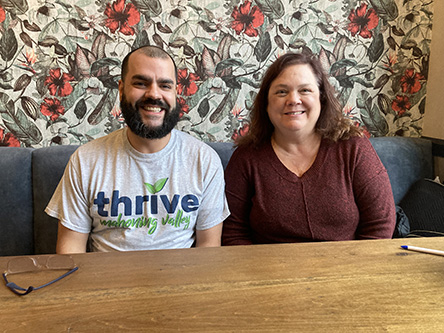
Thrive initiated the Mahoning Valley Immigration Coalition, which brings together Valley organizations – including The English Center and the Ursuline Sisters Mission – that serve immigrants and refugees. The groups are working together to best serve new Americans.
“We’re kind of in our development phase, in our planning phase now to see how we’re going to progress to becoming … a resettlement agency,” Colón says.
Vicki Vicars, director of advancement at Thrive, says the agency would be for refugees.
Thrive officers have met with people from the Regional Chamber and hope to play a role in the repopulation plan for the Valley.
As part of an Appalachian Community Grant application, the chamber is seeking $562,500, with a match of $661,000, to support development of what is described as a Mahoning, Trumbull, Columbiana and Ashtabula county workforce talent retention and attraction ecosystem.
“We’re going to strive to continue advocating for our community to be a place for people to come to, to move to and then helping those who do move here to get acclimated and get the resources they need,” Colón says.
They acknowledge not everyone views people from other countries relocating here positively.
“I think one thing we have to do is highlight and showcase the impact that other cities are experiencing because of the contributions of new Americans and immigrants,” Vicars says. “The American Immigration Council does a really good job of gathering that information and they do annual reports to show the taxes that folks are paying, the jobs they’ve created, homeownership, education and the spending power.”
And a diversity of industry, Colón adds.
“The availability of new types of foods, new types of goods and services they don’t experience when you’re in more distressed communities, like we are,” he says. “We’ve faced decades of extractive industry in this community, and now we’re trying to bring in some things that aren’t extractive – people that want to set up the roots and be part of this community, like Youngstown was built on.”
Pictured at top, left to right: Sofia Bolkmar, Olga Bolkmar, Rosa Denecena, Jonathan Ortiz, Carla Limon, Vasiliki Constantine, Robert Ortiz, Zoila Santos and Moises Lopez at the Michael Kusalaba Branch of the Public Library of Youngstown & Mahoning County.

